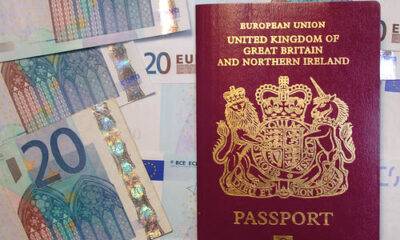Work Abroad
Recreational Aide in Canada: Opportunities, Roles, and FAQs
Recreational Aide in Canada
The role of a recreational aide in Canada is an essential one, providing opportunities for individuals to engage in recreational activities that enhance their physical, emotional, and social well-being. Whether you are interested in pursuing a career in recreation or are simply curious about the field, there are many opportunities available for those looking to become recreational aides in Canada.
In this article, we will explore the various roles and responsibilities of recreational aides, the skills and qualifications required to succeed in this field, the job outlook, and frequently asked questions about pursuing a career in recreation. So, if you are passionate about helping others and making a positive impact on people’s lives through recreational activities, keep reading to learn more about the world of recreational aids in Canada.
Understanding the Role of Recreational Aides
Recreational Aides, often referred to as “joy-bringers,” are professionals dedicated to orchestrating recreational activities that cater to individuals’ physical, emotional, and mental needs.
Through thoughtfully designed activities, they promote social interaction, cognitive stimulation, and physical mobility among participants. Their impact transcends the surface, creating ripples of happiness and improved well-being.
Importance of Recreational Aides in Enhancing Quality of Life
The significance of Recreational Aides becomes evident when considering the positive effects on individuals’ overall quality of life. Beyond the scope of medical treatment, recreational activities foster emotional connections, combat feelings of isolation, and uplift spirits.
For seniors, particularly, these interactions can stave off feelings of loneliness and depression, promoting a healthier mental state.
Read Also: The Impact of AI on the Canadian Job Market
The Demand for Recreational Aides in Canada
Growing Need for Therapeutic Recreation
Canada’s healthcare landscape is evolving, with a growing recognition of the therapeutic benefits of recreation. Recreational Aides are at the forefront of this paradigm shift, as their expertise in curating activities that align with therapeutic goals becomes increasingly sought after.
Hospitals, rehabilitation centers, and senior living communities are integrating recreational programs as a vital component of patient care.
Impact of Aging Population on Job Opportunities
As Canada’s population continues to age, the demand for recreational services tailored to seniors is on the rise. The older demographic seeks not only medical care but also holistic experiences that contribute to their overall happiness.
Recreational Aides bridge the gap between medical treatment and emotional fulfillment, making them an integral part of healthcare teams.
Qualifications and Skills
Educational Requirements for Recreational Aide in Canada
Becoming a Recreational Aide requires a combination of formal education and personal attributes. While specific educational paths may vary, many aspiring Recreational Aides pursue diplomas or certificates in therapeutic recreation or related fields.
These programs equip them with the foundational knowledge needed to understand the nuances of recreational therapy.
Essential Soft Skills for Success in the Field
While technical knowledge is crucial, the heart of a Recreational Aide lies in their soft skills. Empathy, creativity, patience, and effective communication are the cornerstones of their success.
The ability to connect with individuals from diverse backgrounds and tailor activities to their unique preferences is what sets exceptional Recreational Aides apart.
Certifications and Training Programs Available
To excel in this field, individuals can pursue certifications from recognized organizations. Certifications such as Certified Therapeutic Recreation Specialist (CTRS) enhance credibility and demonstrate a commitment to providing top-tier recreational services.
Additionally, ongoing training programs keep Recreational Aides updated with the latest techniques and trends.
Work Settings for Recreational Aide in Canada
Hospitals and Healthcare Facilities
Recreational Aides are invaluable assets in hospitals, where they collaborate with healthcare teams to uplift patients’ spirits. Whether leading group activities or providing one-on-one companionship, they contribute to the healing process by promoting positive emotions and mental well-being.
Senior Living and Retirement Communities
In senior living communities, Recreational Aides curate activities that cater to retirees’ interests and abilities. These activities foster a sense of belonging, combatting feelings of loneliness that can often accompany the transition to retirement living.
Rehabilitation Centers and Mental Health Facilities
Recreational Aides form an integral part of rehabilitation and mental health teams. Through structured activities, they aid in physical recovery, cognitive improvement, and emotional healing. Their presence provides a ray of hope in challenging times.
Duties and Responsibilities
Planning and Organizing Recreational Activities
At the core of a Recreational Aide’s role is the art of planning engaging activities. From crafting art workshops to organizing group outings, these professionals curate experiences that cater to participants’ interests, abilities, and therapeutic goals.
Tailoring Activities for Diverse Patient Needs
One size does not fit all in the world of recreational therapy. Recreational Aides excel at understanding individuals’ unique needs, whether they are recovering from surgery, managing chronic conditions, or seeking emotional support. This personalized approach ensures that activities are both enjoyable and beneficial.
Collaborating with Healthcare Teams for Holistic Care
Recreational Aides collaborate closely with doctors, nurses, therapists, and other healthcare professionals. This synergy ensures that the recreational activities align with patients’ overall treatment plans, contributing to a holistic approach to care.
Challenges and Rewards
Addressing Physical and Cognitive Limitations
One of the challenges Recreational Aides face is adapting activities to accommodate physical limitations or cognitive impairments. However, it’s through these challenges that they discover innovative ways to engage individuals and spark moments of joy.
Emotional Fulfillment and Positive Impact on Patients
The heartwarming reward of a Recreational Aide’s job is witnessing the positive impact on patients’ lives. The joy in a senior’s eyes as they complete a craft project or the laughter of children with special needs during a play session are testaments to the profound effect of recreational therapy.
Career Growth and Advancement Opportunities
Recreational Aides often find themselves on a career path that offers various growth avenues. With experience, they can transition into supervisory roles, lead recreation programs, or even contribute to research and innovation in therapeutic recreation.
Going Through the Job Search
Online Job Portals and Resources
For those looking to embark on a journey as a Recreational Aide, online job portals and healthcare websites provide a wealth of opportunities. These platforms list vacancies in hospitals, senior living communities, and various healthcare settings.
Crafting an Effective Recreational Aide Resume
A well-crafted resume highlights an applicant’s relevant skills, experience, and passion for recreational therapy. Emphasizing soft skills, certifications, and any previous involvement in recreational programs can give an edge in a competitive job market.
Acing Interviews and Demonstrating Suitability
During interviews, Recreational Aide applicants should showcase their empathy, creativity, and understanding of the role’s significance. Sharing personal stories of positive impact can leave a lasting impression on potential employers.
In-Demand Recreational Aide Specializations
Geriatric Recreation for Elderly Patients
With the aging population, specialized geriatric recreation is in high demand. Recreational Aides skilled in creating activities that address the unique needs of seniors, such as gentle exercises, memory-enhancing games, and social gatherings, are highly valued.
Pediatric Recreation for Children with Special Needs
Recreational Aides who specialize in pediatric care focus on children with special needs. These professionals design activities that encourage developmental milestones, social interactions, and emotional growth.
Mental Health and Addiction Recovery Support
In the realm of mental health and addiction recovery, Recreational Aides contribute to individuals’ healing journeys. Activities that promote emotional expression, stress relief, and building coping mechanisms play a vital role in recovery.
Read – Busser Jobs in Canada: Diving into the World of Bussers
Compensation and Benefits
Average Salary Range for Recreational Aides in Canada
The compensation for Recreational Aides varies based on factors such as experience, location, and work setting. On average, they can expect a competitive salary that reflects their dedication to enhancing the well-being of others.
Benefits Packages and Perks Offered by Employers
Apart from monetary compensation, many employers offer benefits packages that may include healthcare coverage, retirement plans, and professional development opportunities. These perks enhance the overall job satisfaction of Recreational Aides.
Legal and Ethical Considerations
Maintaining Patient Confidentiality and Privacy
Recreational Aides adhere to strict confidentiality standards, ensuring that patients’ personal information and experiences are kept private. This trust fosters a safe environment for individuals to engage in recreational activities.
Adhering to Professional and Ethical Standards
The ethical compass of Recreational Aides guides their interactions with participants, ensuring activities are respectful, inclusive, and align with individuals’ values and beliefs.
Summary
As we conclude this exploration of Recreational Aide in Canada, it’s evident that these professionals go beyond mere recreation. They are architects of happiness, catalysts of connection, and companions in healing. Their impact reverberates in the lives they touch, creating memories and moments of joy.
Looking ahead, the demand for Recreational Aides is poised to rise as healthcare embraces the power of holistic healing. The aging population, evolving therapeutic approaches, and the recognition of recreation’s vital role ensure a promising future for those pursuing this noble profession.
Click Here to Search and Apply Recreational Aide Job Now!!!
FAQs
What exactly does a recreational aide do? Recreational Aides orchestrate engaging activities that promote emotional, cognitive, and physical well-being among participants. They bring joy, companionship, and therapeutic benefits to individuals in various healthcare settings.
What qualifications are required to become a recreational aide in Canada? To become a Recreational Aide, aspiring individuals often pursue diplomas or certificates in therapeutic recreation or related fields. Soft skills like empathy and creativity are equally essential for success in this role.
Are there specialized areas within recreational aide jobs? Absolutely. Recreational Aides can specialize in areas such as geriatric recreation, pediatric care, and mental health support. These specializations allow them to tailor activities to specific patient needs.
How can I find job opportunities as a recreational aide? Online job portals, healthcare websites, and networking within the healthcare industry are effective ways to discover Recreational Aide job openings.
What is the expected salary range for recreational aides in Canada? The salary range for Recreational Aides varies based on factors like experience and location. On average, they can expect competitive compensation for their valuable contributions.




















Pingback: Online Jobs Work From Home in Canada: Unlocking Opportunities - Home of Jobs | Remote Jobs and Immigration News
Pingback: Hair Stylist Jobs in Canada - Visa | Work Abroad | Remote Work | And Career